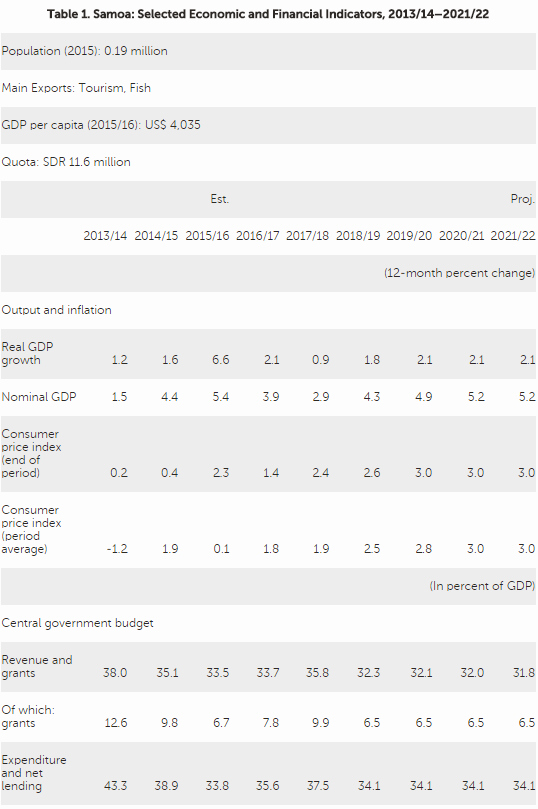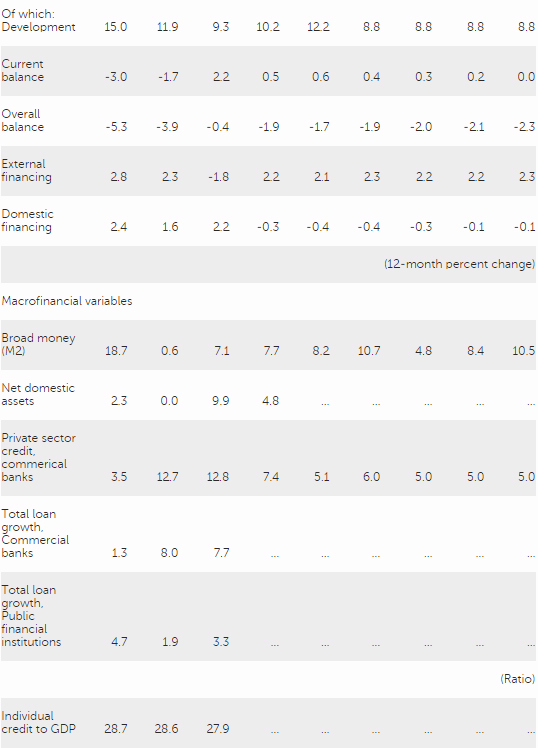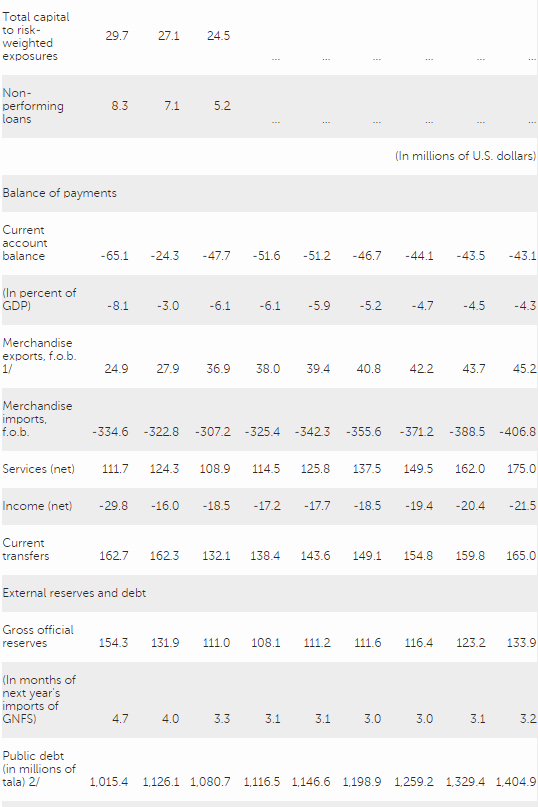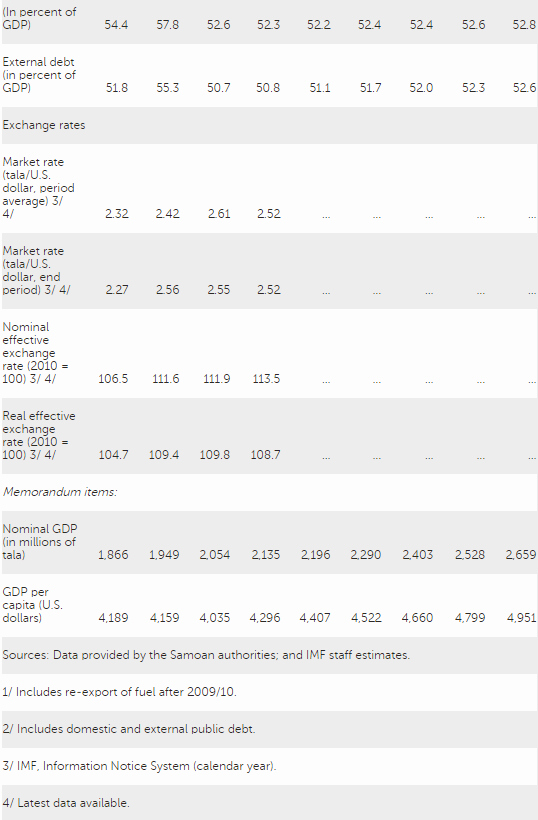IMF Executive Board Concludes 2017 Article IV Consultation with Samoa
On May 1, 2017, the Executive Board of the International Monetary Fund (IMF) concluded the Article IV Consultation with Samoa.
Samoa’s economy continues to perform well. Economic activity picked up during 2015/16 driven by tourism arrivals, lower fuel prices, and new fish processing facilities, further boosted by two major sporting events and infrastructure projects. Although the pace will moderate in 2017/18 and in 2018/19 with the closure of a large manufacturing plant, growth is expected to remain buoyant, with GDP growing at around 2 percent annually, driven by construction activity, infrastructure development and improvements in the business environment.
The outlook is moderately positive though subject to downside risks related to Samoa’s vulnerability to natural disasters, elevated contingent liabilities, and withdrawal of correspondent banking relationships. Given Samoa’s reliance on workers’ remittances, the closure of bank accounts of money transfer operators (MTOs) heightens the risk of a disruption to remittance payments.
Inflation is subdued, but is expected to pick up with increasing commodity prices, and will remain close to 3.0 percent over the medium term. Although the trade balance improved, the current account deficit widened to 6.1 percent of GDP in 2015/2016 (from 3.0 percent). This reflects a deterioration of the services balance and lower remittances related to charities, which more than offset an improvement in tourism earnings. In the medium term, the current account deficit is expected to gradually narrow to about 4½ percent of GDP.
The exchange rate has remained stable and an accommodative monetary policy stance has supported private sector activity. Reserves recovered in December and January to 3.2 months of imports, reversing a gradual decline during 2016.
Financial stability indicators point to a generally sound banking system, though there are risks stemming from high loan concentration, the number of borrowers with a high loan-to-capital ratio, and the potential for a sharp deterioration in asset quality in the event of a natural disaster.
Executive Board Assessment
Executive Directors agreed commended the authorities for their prudent policies which led to strong economic performance. However, they noted that the outlook is subject to significant downside risks given Samoa’s susceptibility to natural disasters. Spillovers from the withdrawal of correspondent banking relationships also pose challenges. Directors underscored the need to rebuild buffers, increase resilience, and implement structural reforms to secure sustained growth.
Directors welcomed the measures being taken to mitigate the impact of the withdrawal of correspondent banking relationships on the remittance sector. They encouraged the authorities to strengthen the Anti-Money Laundering/Combating the Financing of Terrorism framework and to consider the establishment of a Know Your Customer utility to help prevent disruptions to remittances and lower their cost.
To reduce financial sector vulnerabilities, Directors encouraged further implementation of the recommendations of the 2015 Financial Sector Assessment Program. Directors agreed that reform of public financial institutions (PFIs) remains a high priority and will help reduce risks from contingent liabilities and prevent crowding‑out of private financial institutions.
Directors welcomed recent fiscal consolidation efforts and highlighted the need for further measures to reduce public sector debt to a more sustainable level. They emphasized the importance of sustaining expenditure control and increasing revenues, including by broadening the tax base and improving compliance. Ongoing efforts to improve the performance of PFIs and state‑owned enterprises would also help to mitigate fiscal risks posed by contingent liabilities.
Directors considered the current monetary policy stance appropriate, given low inflation and moderate growth prospects. Noting that reserves appear to be broadly adequate, they encouraged the authorities to monitor the situation and be ready to recalibrate both monetary and fiscal policy to ensure sufficient coverage.
Directors emphasized that accelerating the pace of structural reforms is necessary to meet Samoa’s development goals. They welcomed the efforts being made to spur private sector activity and enhance the resilience of public infrastructure to natural disasters. Private sector activity could be further boosted by improving the business climate, increasing access to credit for small and medium‑sized enterprises, and addressing skills mismatches and shortages.




Source: International Monetary Fund
- 294 reads
Human Rights
Fostering a More Humane World: The 28th Eurasian Economic Summi

Conscience, Hope, and Action: Keys to Global Peace and Sustainability

Ringing FOWPAL’s Peace Bell for the World:Nobel Peace Prize Laureates’ Visions and Actions

Protecting the World’s Cultural Diversity for a Sustainable Future

Puppet Show I International Friendship Day 2020

